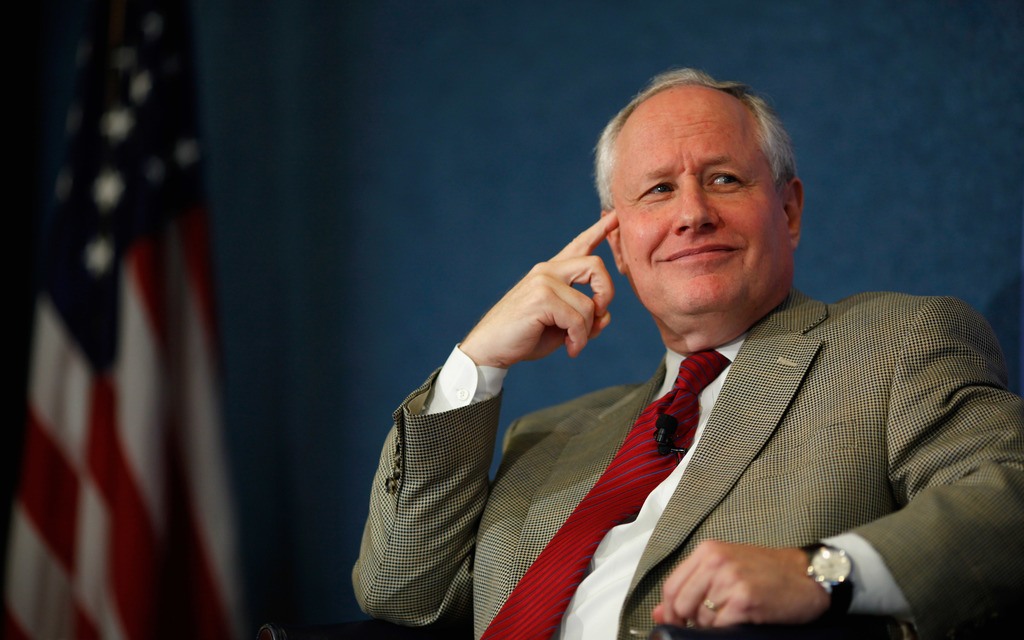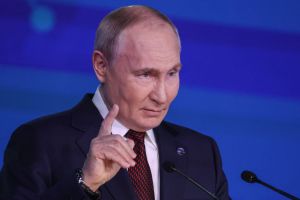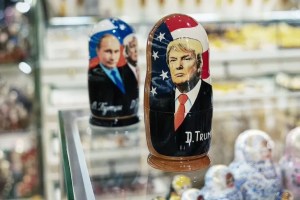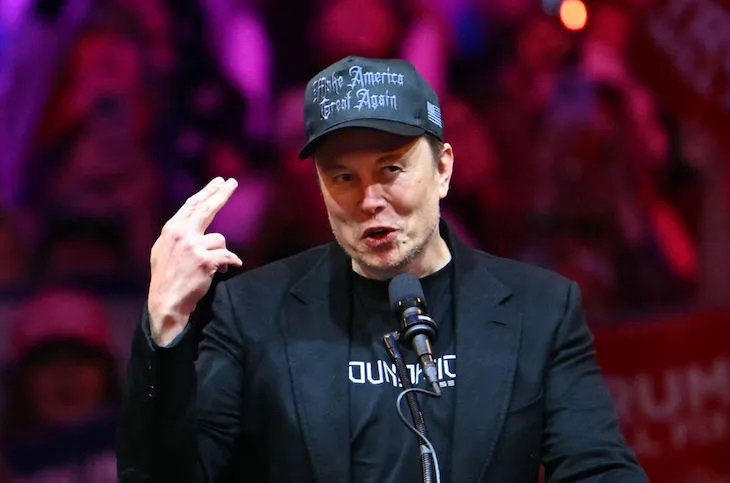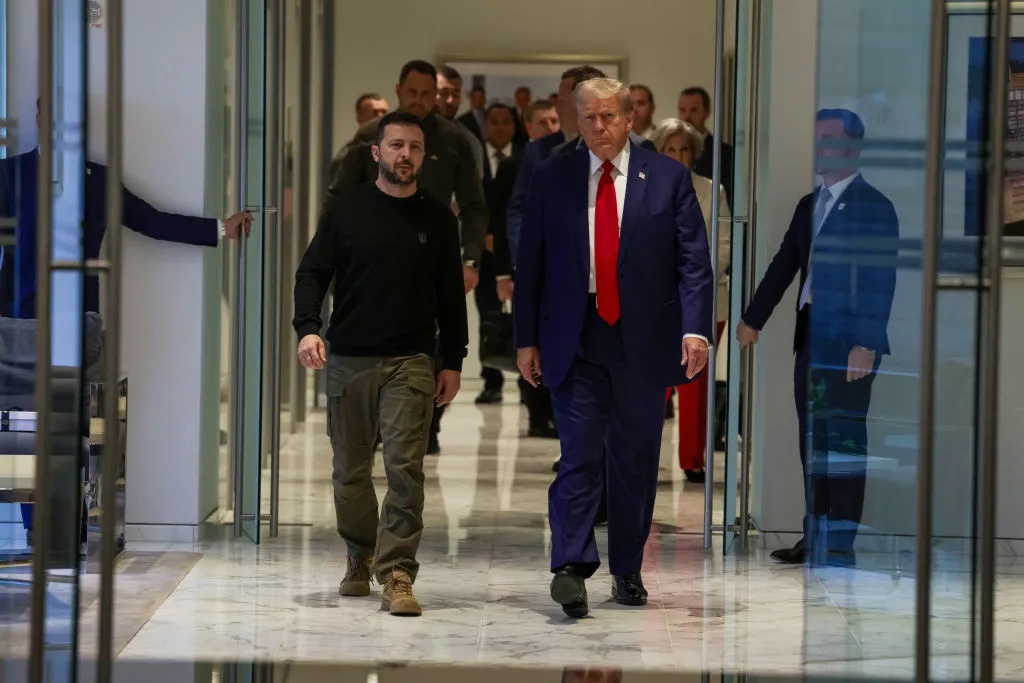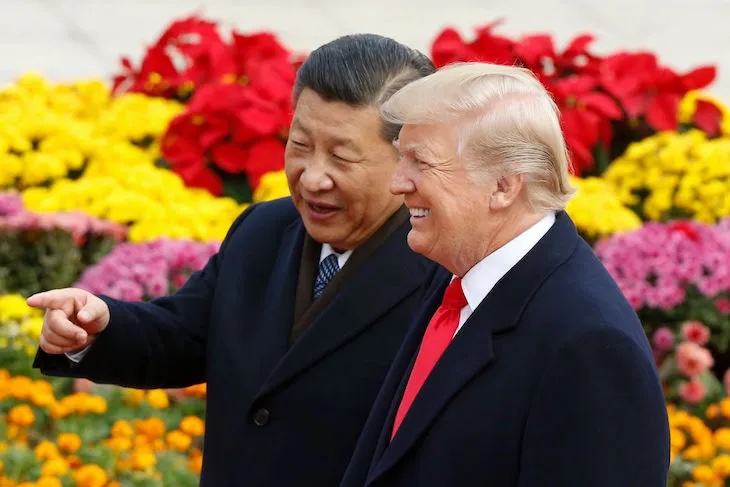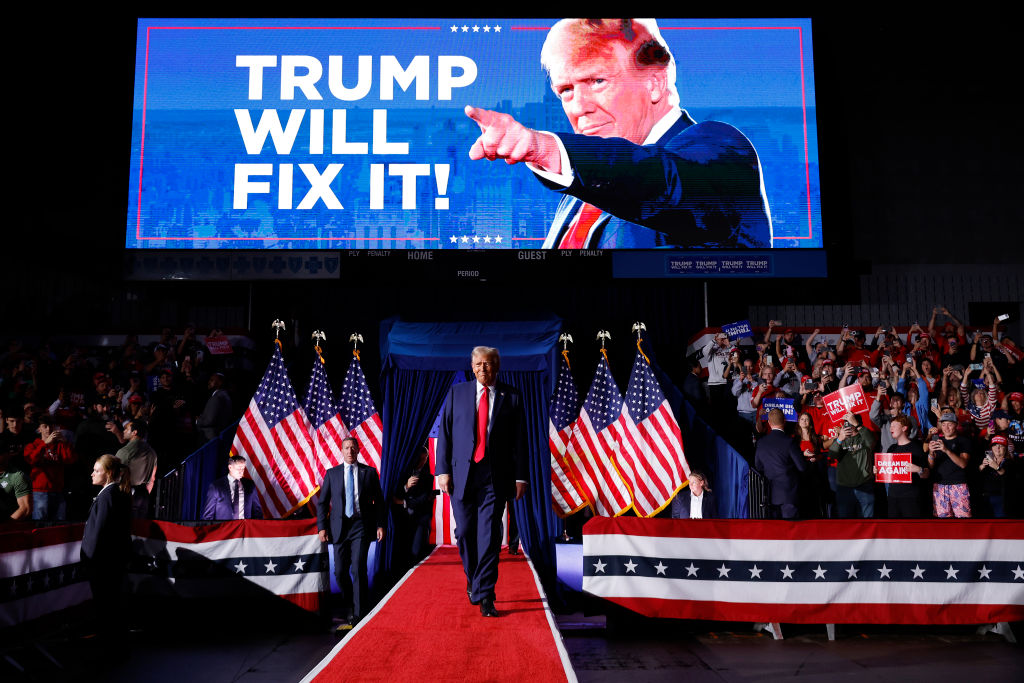If hot takes brought peace, mankind would never know war again. At least, that’s the impression one is left with after spending time on Twitter during Russia’s horrific invasion of Ukraine.
Some social media users seem to operate under the understanding that they are legally required to put their first — and often worst — opinions immediately onto the internet for all to see.
Many of these tweets reflect the understandable human tendency to grasp at an explanation for terrible events. Laurie Garrett, a Pulitzer Prize-winning writer who is considered an oracle of sorts on the coronavirus pandemic, put forth an interesting theory. “It’s been suggested that #Putin isn’t thinking properly, perhaps due to long #COVID19,” she wrote. “No proof, of course,” she qualified her speculation. Natch. She has deleted her tweet, but screenshots abound. She posted some circumstantial evidence that the Russian president may have had Covid, but her supposition forces one to ask if all expansionist leaders throughout history have had lingering respiratory issues.
CNN contributor Garrett Graff and CNN White House reporter John Harwood, meanwhile, immediately decided to blame Trump. Graff wrote that Trump had weakened the United States via a “straight line from Russia’s attack on the US election in 2016 to 1/6 to today’s new invasion of Ukraine.” Harwood expounded upon Graff’s point, offering that “the Russian thug now attacking Ukraine helped Donald Trump become president because he thought that would some day make this kind of attack easier to pull off. He was right in the short term.” Apparently these efforts didn’t improve Putin’s short-term prospects enough to actually attack during Trump’s presidency, of course.
Bill Kristol, the dean of Never Trumpers, tweeted out a video in which Trump praised Putin’s strategic smarts in moving on Ukraine in the face of ineffectual sanctions. “The vile, en masse,” hissed Kristol. Cropped from his video clip? The part where Trump said, “This is something that should never have happened. This is something that would never have happened in my administration…it’s a very sad thing.” And again, it didn’t happen during Trump’s administration.
Rick Wilson of the morally challenged Lincoln Project swiped at the right wing’s meme culture. “When there are 50 or 100 thousand dead Ukrainians, at least you can take comfort knowing that you owned the libs, right?,” he tweeted. Opposing Rick Wilson in this opinion? Rick Wilson. Back in 2014, the erstwhile conservative tweeted that “we’ve deployed Biden to quiet Ukraine. Expect the flames to keep rising.” Never let it be said that Rick Wilson is not a man of principle — he will do whatever it takes to fatten his own wallet.
Jonah Goldberg of the Dispatch pegged the invasion as a failure of American nationalism. “Amazing how so many of the self-proclaimed American nationalists talk such a big game about the importance of nationalism, the morality of nationalism, the necessity of nationalism, just don’t care very much when an imperial power tries to erase a nation.” Presumably, however, most American nationalists seek to defend the interests of America, not of nations in the abstract.
Karen Swallow Prior, a progressive evangelical theologian, called out a failure of American manhood. “I doubt these guys tweet about ‘manliness,’” she wrote, boosting a video of the Ukrainian president and his advisors wearing fatigues outside of a government building. Not pictured: the Ukrainian president and his advisors being lectured on toxic masculinity by people like Karen Swallow Prior.
The focus should be on the right’s supposed white supremacy. At least, that’s what you’d conclude if you’re Cenk Uygur, host of progressive political show The Young Turks. “Right-wing doesn’t love Putin just because he is an authoritarian, tyrannical leader, they love him because he’s a WHITE authoritarian leader. Race has become more important than even nationality,” wrote Uygur. A few days later he put forth a lame defense of his lame tweet: “remember when the right-wing was outraged that I said they support Putin because of race, here is a gathering of white supremacists chanting Putin’s name.” Add the casual sleight of hand equating “right wing” with “white supremacist” to the list of things that Uygur has said that are worthy of outrage.
Nikole Hannah-Jones of the New York Times’s celebrated 1619 Project sought not only to reframe the conflict as a matter of white supremacy, but the continent. “What if I told you Europe is not a continent by definition, but a geopolitical fiction to separate it from Asia and so the alarm about a European, or civilized, or First World nation being invaded is a dog whistle to tell us we should care because they are like us,” she mused. If you can’t bring your theory to the war, bring the war to your theory.
Some stopped short of seeking understanding — at least as rooted in reality. “Thought leader” — his words — Matthew Dowd retreated to the cinema: “Let me make this perfectly clear. Putin is Emperor Palpatine. The Ukrainian people and all those who stand up for democracy around the world and here in America are Rey Skywalker, Jyn Erso, and the Rebel alliance. Pick your side.” Wow, Matthew, spoilers! (Anyone surprised he’s a new trilogy guy?)
Some meant well, but just…shouldn’t have. The Oval Pawfice, a novelty fan account for the Biden family pets with an inexplicable following of 228,000, said that the First Animals are “furry pupset about what’s happening in Ukraine,” and “heartbroken about the hoomans and pets” battling Russia. Actress AnnaLynne McCord posted a video of herself reciting a poem about how things would have been different if she had been Putin’s mother. It must be seen to be believed.
It wasn’t all frivolity, though. Others maintained a laser-like focus on what’s really important. Venerable retired think tank scholar Norman Ornstein wrote, “I am dismayed now that the president did not announce his nominee for the Supreme Court before this… Lost the momentum you need from an announcement that captures public attention.”
Former secretary of state John Kerry, meanwhile, warned that the Ukraine crisis could take public attention away from the climate crisis. Democratic political operative Dana Houle fretted about Ukraine’s public health: “Lot of people in Ukraine crowding together inside. Only 35 percent of Ukrainians have been vaccinated. Less than 2 percent have been boosted.” Good thinking — Covid has to be at least as deadly as artillery fire.
Still others saw opportunity. Voice actress Amanda Winn-Lee noted that “in one way, Putin did us a favor-historically every president running for reelection during a war has won.” Sounds like collusion. Better ready those articles of impeachment!
Angela Belcamino, a political activist who became famous for dancing awkwardly as a form of anti-Trump protest, came forward with a bit of military strategy: “Draft the unvaccinated.” Don’t tell her that most Ukrainians are unvaccinated, lest her sympathies falter!
The Atlantic’s David Frum, a pre-Trump refugee from conservatism, braced Americans for domestic consequences: “Putin’s war will raise, is raising the cost of fuel and food. Be ready to explain that to friends and neighbors when Putin-friendly talkers and politicians try to blame our elected leaders.” Is it Putin-friendly to point out that the costs of fuel and food have been rising for the past year?
And Frum’s Atlantic colleague Tom Nichols used this chance to resolve the citizenship question once and for all. “If you support Trump, even now, you’re not someone I can think of as a fellow citizen,” he opined to no one in particular.
But a special award for brazenness goes to Seth Abramson who angrily defended and then ultimately deleted a plug for his book on Trump’s impeachments as the key to understanding the crisis.
Lest anyone accuse me of neglecting the right, Arizona state senator Wendy Rogers exclaimed that “the West is trying to deplatform and debank Russia. This is just as wrong as invading Ukraine.” And Tom Harwood, a young conservative journalist from the UK, wrote that viral videos depict Ukrainians talking to Russian troops “and then move on, all too often no conflict.” “Needs to be a far more universal guerilla spirit,” he advised, presumably from a more comfortable locale than in the face of a Russian soldier.
The awful takes transcended political, social, and national boundaries. On social media, any one of us could play the clown. There are only two ways forward — either stay off of Twitter entirely or avoid becoming famous. That last one won’t prevent you from saying something silly, but if you’re lucky, it will make you less likely to go viral.
Bill Zeiser is editor of RealClearPolicy.



